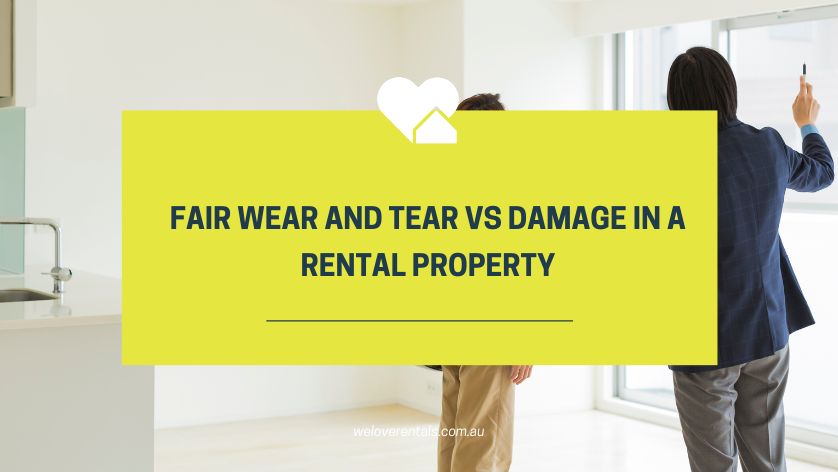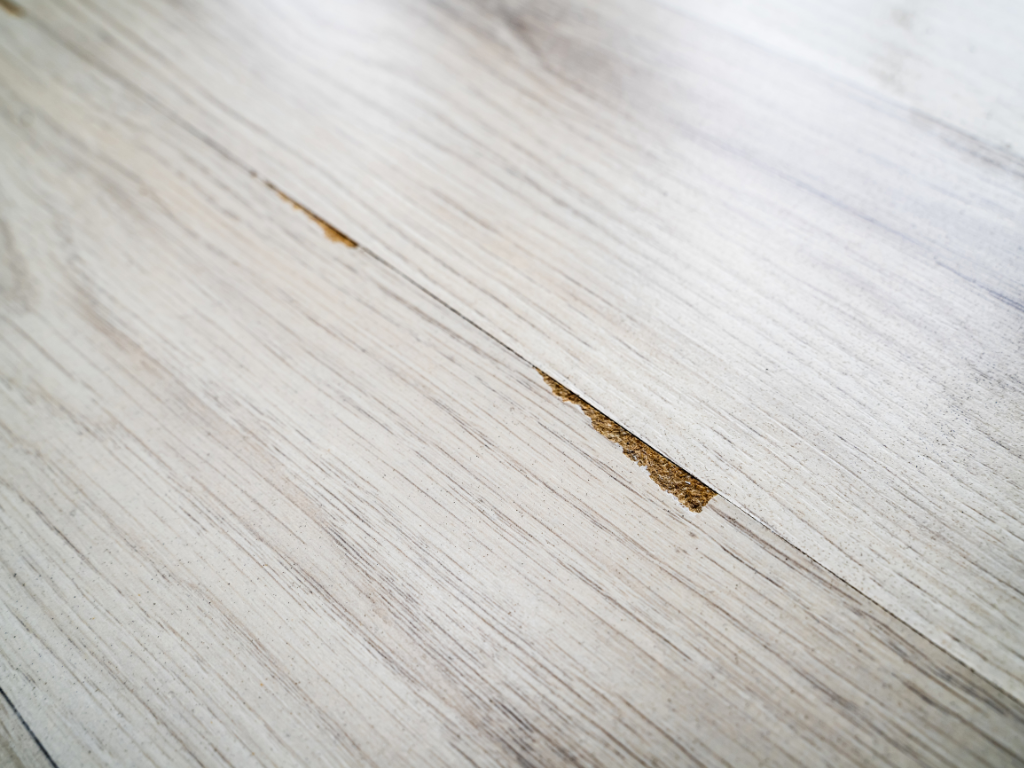
Fair Wear and Tear vs Damage in a Rental Property
If you’ve come across this blog, chances are you’re dealing with damage or deterioration at a rental property, and you’re looking for a clear definition of fair wear and tear vs damage.
Whether you’re the landlord or the tenant, you may be unsure who should pay for this. Or maybe you’re quite certain that it’s not you, but don’t know how to make your case?
Deciding “who pays?” hinges on whether damage/deterioration is “fair wear and tear” — a landlord responsibility — or caused by tenants, who must then pay.
To help you judge this, and avoid stressful disputes, we’ve asked the experts!

What is Fair Wear and Tear to a Rental Property?
While fair wear and tear isn’t defined in WA law, industry practice and past court decisions provide a working definition.
It is commonly held that fair wear and tear includes deterioration due to:
- normal, reasonable use that falls within the lease terms
- ageing
- natural forces like sun and rain.
Tenants aren’t responsible for deterioration they didn’t contribute to — for example, caused by substandard building work, weather, or burglary.
There are some grey areas — for example:
- if tenants report a leak, it isn’t repaired, then carpets rot, they aren’t responsible but
- if a tenant doesn’t report a leak, they become responsible for consequential damage.
What is Damage (accidental or otherwise)?
Damage is loss, breakage, or deterioration, caused by the accidental or deliberate actions of:
- tenants/their children
- pets
- invited guests.
Unauthorized alterations are also classed as damage.
Tenants have an obligation to make good on damage they cause.
Examples of Fair Wear and Tear vs Damage
Similar things can be fair wear and tear, or damage, depending on how they happened.
| Fair Wear and Tear | Damage |
|---|---|
| Mould caused by leaky pipes | Mould caused by not using exhaust fans |
| Plaster walls crack as ground ‘settles’ | Walls have holes where picture hooks were removed |
| Window glass breaks during a hailstorm | Kids break glass playing cricket |
| Curtains fade due to sunlight | Curtains are torn |
| Walls have a few grubby marks | Walls are covered in crayon drawings |
| Bench tops are worn | Benchtops have burn marks |
| Carpets are worn | Carpets are stained / smell of pet urine |
| Timber floors are scuffed | Timber floors have deep scratches / dents |
| Lawn dies due to armyworm infestation | Lawn dies after tenants turn off reticulation |
When Is Fair Wear and Tear an Issue?
Conflicts about fair wear and tear versus damage usually arise at the end of a tenancy, because the landlord claims the bond.
They can also happen when:
- a routine property inspection identifies damage, but tenants dispute responsibility
- tenants arrange repairs then seek reimbursement because the landlord didn’t arrange work promptly
- a landlords’ insurance claim is denied because a problem is classed ‘fair wear and tear’, not damage.
What Happens When Landlords and Tenants Can’t Agree?
When there’s disagreement about who should rectify damage or deterioration at a rental property, Consumer Protection can often help with negotiations.
Either party can also apply to the Magistrates Court for a ruling.
The Court will consider matters such as the age and condition of the property, and the depreciated value of the item damaged, as well as who did the damage.
For example, they won’t normally make tenants replace damaged 10-year-old carpet, as 10 years is the depreciable life of carpet.
The Australian Prudential Regulation Authority resolves insurance disputes.
These formal processes are all lengthy!
Your property manager can usually negotiate a mutually agreed outcome more quickly.
Understanding your rights and responsibilities (and being willing to compromise) helps them with this.
How Can I Get the Best Result?
If you have a tricky scenario, why not talk to the helpful, experienced property managers at We Love Rentals for advice?
We’ve helped many landlords and tenants to better understand fair wear and tear and avoided stressful disputes for them.
Email us, check out our past blog post on fair wear and tear, or call (08) 6254 6300 for friendly, professional advice.

